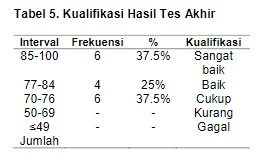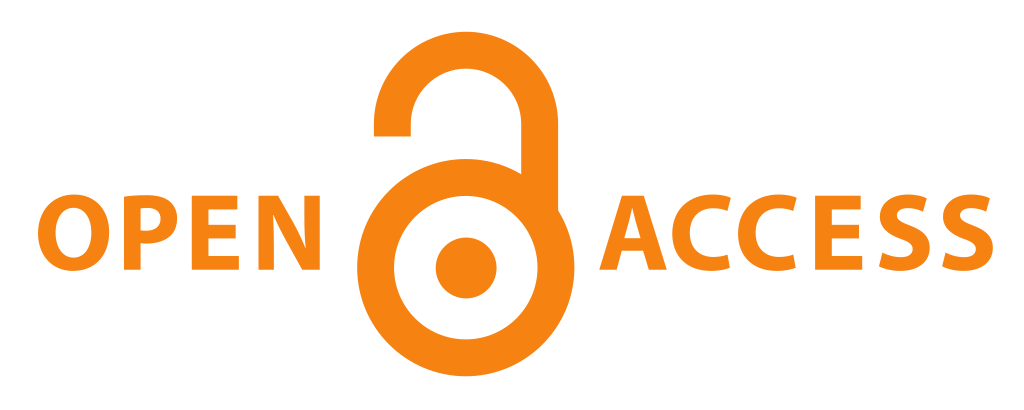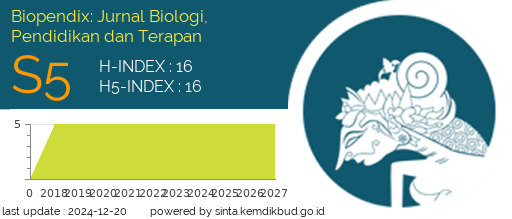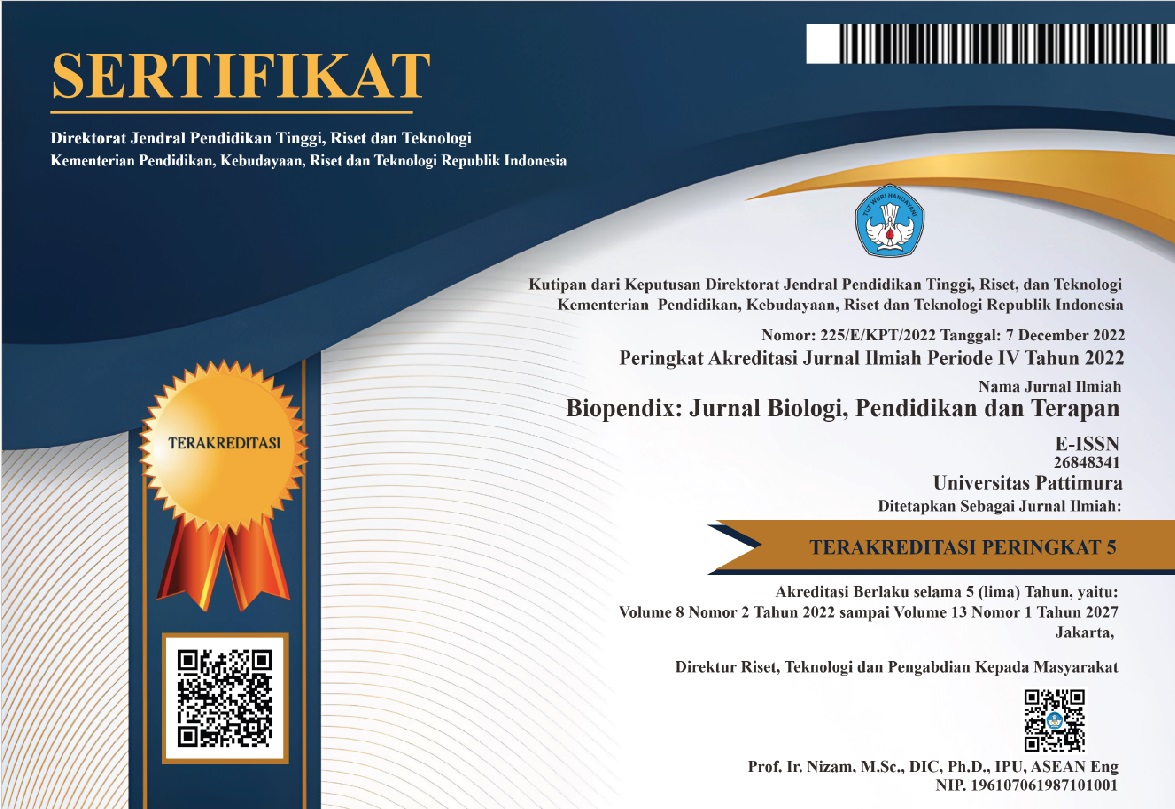PENERAPAN PERANGKAT PEMBELAJARAN MODEL QUANTUM LEARNING TERHADAP HASIL BELAJAR SISWA KELAS X SMA KARTIKA XIII-1 AMBON
Abstract
Background: Quantum learning model is a set of learning models that are proven to be effectively applied in schools. This study aims to determine the application of biological learning devices using quantum learning models to the learning outcomes of virus material can improve student learning outcomes in class X SMA Kartika XIII-1 Ambon.
Method: This type of research is descriptive type. The population in this study is SMA Kartika XIII-1 Ambon. The samples in this study were all students of class X MIA SMA Kartika XIII-1 Ambon, amounting to 16 students. The data obtained were analyzed descriptively and inferentially.
Results: In the cognitive aspect of 16 students there were 5 students with a percentage (31.25%) getting grades (85-100) with very good qualifications and 11 students with a percentage (68.75%) getting grades (77-84) with qualifications well. Affective aspects, where at intervals of 77-84 there are 13 students (81.25%), 3 students score at intervals of 70-76 (18.75%) who have this value with complete qualifications. Psychomotor aspects, where at intervals of ≥70 there are 16 students (100%) who have grades with complete qualifications.
Conclusion: The level of student success viewed from cognitive, affective, and psychomotor aspects. This is in accordance with the analysis data and the percentage data obtained at the initial test was 65.31% while the final percentage of the test produced was 79.68%.
Downloads

Authors who publish with this Journal agree to the following terms:
- Author retain copyright and grant the journal right of first publication with the work simultaneously licensed under a creative commons attribution license that allow others to share the work within an acknowledgement of the work’s authorship and initial publication of this journal.
- Authors are able to enter into separate, additional contractual arrangement for the non-exclusive distribution of the journal’s published version of the work (e.g. acknowledgement of its initial publication in this journal).
- Authors are permitted and encouraged to post their work online (e.g. in institutional repositories or on their websites) prior to and during the submission process, as it can lead to productive exchanges, as well as earlier and greater citation of published works




 2
2






